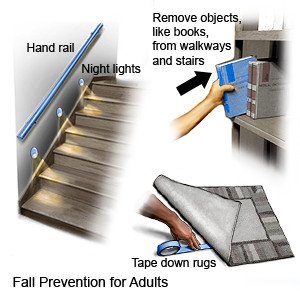Post Concussion Syndrome
Medically reviewed by Drugs.com. Last updated on Aug 4, 2025.
Post-concussion syndrome (PCS) is a group of symptoms that affect your body, thinking, and behavior. PCS develops 10 to 14 days after a concussion and can last for weeks to years.
DISCHARGE INSTRUCTIONS:
Have someone call your local emergency number (911 in the US) if:
- You have a seizure.
- You have trouble breathing.
- You are not responding, or you cannot be woken.
Return to the emergency department if:
- You have a sudden headache that seems different or much worse than your usual headaches.
- You cannot stop vomiting.
- You have sudden changes in your vision, or your pupils are different sizes.
Call your doctor if:
- You feel depressed.
- You have nausea or are vomiting.
- You have trouble concentrating.
- You have trouble speaking or thinking.
- Your symptoms get worse.
- You have questions or concerns about your condition or care.
Medicines:
You may need any of the following:
- Acetaminophen decreases pain and fever. It is available without a doctor's order. Ask how much to take and how often to take it. Follow directions. Read the labels of all other medicines you are using to see if they also contain acetaminophen, or ask your doctor or pharmacist. Acetaminophen can cause liver damage if not taken correctly.
- NSAIDs help decrease swelling and pain or fever. This medicine is available with or without a doctor's order. NSAIDs can cause stomach bleeding or kidney problems in certain people. If you take blood thinner medicine, always ask your healthcare provider if NSAIDs are safe for you. Always read the medicine label and follow directions.
- Antidepressants may be given for depression or sleep problems.
- Migraine medicines may be given for migraine headaches.
Prevent PCS:
- Follow your treatment plan after a concussion to help you heal. You will heal more quickly if you follow your healthcare provider's instructions.
- Make your home safe. Home safety measures can help prevent head injuries that could lead to a concussion. Install handrails for every staircase. Put soft bumpers on furniture edges and corners. Secure furniture, such as dressers and bookcases so they do not fall over.

- Always wear a seatbelt in the car. A seatbelt helps decrease your risk for a head injury if you are in a car accident.
- Wear protective sports equipment that fits properly. Helmets help decrease your risk for a serious brain injury. Talk to your provider about other ways that you can decrease your risk for a concussion if you play sports. Ask for more information about sports concussions.
Manage your symptoms:
- Rest from physical and mental activities as directed. Mental activities need you to think, concentrate, and pay attention. Rest will help you recover from your concussion. Ask your healthcare provider when you can return to school and other daily activities.
- Go to therapy as directed. A cognitive behavioral therapist teaches you skills to help with any thinking and behavior problems you may have. An occupational therapist teaches you skills to help with daily activities.
- Do not participate in sports or physical activities until your provider says it is okay. These activities could make your symptoms worse or lead to another concussion. Your provider will tell you when it is okay to return to sports or physical activities.
Follow up with your doctor or specialist as directed:
Your doctor may refer you to a psychiatrist, a neurologist, or a substance abuse counselor. Write down your questions so you remember to ask them during your visits.
For more information:
- Brain Injury Association
1608 Spring Hill Road
Vienna , VA 22182
Phone: 1- 703 - 761-0750
Phone: 1- 800 - 444-6443
Web Address: http://www.biausa.org
© Copyright Merative 2025 Information is for End User's use only and may not be sold, redistributed or otherwise used for commercial purposes.
The above information is an educational aid only. It is not intended as medical advice for individual conditions or treatments. Talk to your doctor, nurse or pharmacist before following any medical regimen to see if it is safe and effective for you.
Learn more about Post Concussion Syndrome
Treatment options
Care guides
Further information
Always consult your healthcare provider to ensure the information displayed on this page applies to your personal circumstances.
